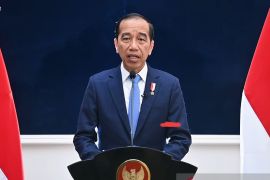"The upgrade this time is extraordinary because it goes directly from stable outlook to investment grade. Usually only after it is in a positive outlook will the credit rating be raised," Rahmat Mulyanto, director general of debt management at the finance ministry, said here on Wednesday.
Rahmat said with the higher investment grade status the yields of state securities in rupiah and foreign denominations would go down so that demand for state bonds would increase.
He said the domestic financial market would be more stable so that global investors` confidence would rise and the possibility of a capital flow reversal would be small.
"This is shown by the success of the 30 years Global Bond issuance which is the biggest in Asia with the lowest yield. Global investors who buy the bonds are qualified and sophisticated institutions that could see the good long-term prospects of Indonesia`s economic fundamentals," he said.
Rahmat said the improved rating would also increase the potential of cheap long-term financing for the government to finance its infrastructure projects.
"Infrastructure development will increase because a cheap long-term financing is available to boost higher economic growth," he said.
The improved rating also proves that the government had been pursuing positive policies in the midst of crisis like bond stabilization framework and the fiscal stimulus in 2012.
Moody`s views Indonesia`s economic growth shows the country`s resilience towards global economic crisis while the government`s policies could overcome financial vulnerabilities and the country`s banking system was stronger than the pressures it was exposed to.
Indonesia`s economic power in the midst of external financial crisis is shown by the country`s capacity to conduct investment, increase infrastructure development and manage its financial system.
The economic growth has also been followed by the country`s capacity to pay its external debts, increase direct investment and keep inflation rates low and stable.
The government`s prudent fiscal management had produced a low deficit and reduced the government`s debt burden on the Gross Domestic Product.
(SYS/H-YH/S012)
Editor: Suryanto
Copyright © ANTARA 2012











